- Home
- Gillian Flynn
Sharp Objects Page 3
Sharp Objects Read online
Page 3
up. She pressed a chilled glass of fizzing amaretto into my hand, patted my shoulder twice, and sat away from me, next to Alan.
“Those little girls, Ann Nash and Natalie Keene,” I prompted. “I’m covering it for my paper.”
“Oh, Camille.” My mother hushed me, looking away. When my mother is piqued, she has a peculiar tell: She pulls at her eyelashes. Sometimes they come out. During some particularly difficult years when I was a child, she had no lashes at all, and her eyes were a constant gluey pink, vulnerable as a lab rabbit’s. In winter time, they leaked streaks of tears whenever she went outdoors. Which wasn’t often.
“It’s my assignment.”
“Goodness, what an assignment,” she said, her fingers hovering near her eyes. She scratched the skin just below and put her hand in her lap. “Aren’t those parents having a difficult enough time without you coming here to copy it all down and spread it to the world? ‘Wind Gap Murders Its Children’!—is that what you want people to think?”
“A little girl has been killed, and another is missing. It’s my job to let people know, yes.”
“I knew those children, Camille. I’m having a very hard time, as you can imagine. Dead little girls. Who would do that?”
I took a slug of my drink. Granules of sugar stuck to my tongue. I was not ready to speak with my mother. My skin hummed.
“I won’t stay long. Truly.”
Alan refolded the cuffs of his sweater, smoothed his hand down the crease of his shorts. His contribution to our conversations generally came in the form of adjustments: a collar tucked in, a leg recrossed.
“I just can’t have that kind of talk around me,” my mother said. “About hurt children. Just don’t tell me what you’re doing, don’t talk about anything you know. I’ll pretend you’re here for summer break.” She traced the braided wicker of Alan’s chair with her fingertip.
“How’s Amma?” I asked to change the subject.
“Amma?” My mother looked alarmed, as if she suddenly remembered she’d left her child somewhere. “She’s fine, she’s upstairs asleep. Why do you ask?”
I knew from the footsteps I heard scampering up and down the second floor—from the playroom to the sewing room to the hall window that gave the best spying vantage of the back porch—that Amma was certainly not asleep, but I didn’t begrudge her avoiding me.
“Just being polite, Momma. We do that up north, too.” I smiled to show I was teasing her, but she buried her face into her drink. Came back up pink and resolute.
“Stay as long as you want, Camille, really,” she said. “But you will have to be kind to your sister. Those girls were her schoolmates.”
“I look forward to getting to know her,” I mumbled. “I’m very sorry for her loss.” The last words I couldn’t resist, but my mother didn’t notice their bitter spin.
“I’ll give you the bedroom next to the sitting room. Your old bedroom. It has a tub. I’ll buy fresh fruit and some toothpaste. And steaks. Do you eat steak?”
Four hours of threadbare sleep, like lying in a bathtub with your ears half submerged. Shooting up in bed every twenty minutes, my heart pounding so hard I wondered if it was the beating that woke me. I dreamt I was packing for a trip, then realized I’d laid out all the wrong clothes, sweaters for a summer vacation. I dreamt I’d filed the wrong story for Curry before I left: Instead of the item on miserable Tammy Davis and her four locked-up children, we’d run a puff piece about skin care.
I dreamt my mother was slicing an apple onto thick cuts of meat and feeding it to me, slowly and sweetly, because I was dying.
Just after 5 a.m. I finally threw off the covers. I washed Ann’s name off my arm, but somehow, between dressing, brushing my hair, and dabbing on some lipstick, I’d written Natalie Keene in its place. I decided to leave it for luck. Outside, the sun was just rising but my car handle was already hot. My face felt numb from lack of sleep and I stretched my eyes and mouth wide, like a B-movie scream queen. The search party was set to reconvene at 6 a.m. for continued work in the woods; I wanted to catch a quote from Vickery before the day began. Staking out the police station seemed a good bet.
Main Street looked vacant at first, but as I got out of my car I could see two people a few blocks down. It was a scene that made no sense. An older woman was sitting in the middle of the sidewalk, legs splayed, staring at the side of a building, while a man was stooped over her. The woman was shaking her head manically, like a child refusing to feed. Her legs shot out at angles that had to hurt her. A bad fall? Heart attack, maybe. I walked briskly toward them and could hear their staccato murmuring.
The man, white hair and ruined face, looked up at me with milky eyes. “Get the police,” he said. His voice came out crumpled. “And call an ambulance.”
“What’s wrong?” I started, but then I saw it.
Wedged in the foot-wide space between the hardware store and the beauty parlor was a tiny body, aimed out at the sidewalk. As if she were just sitting and waiting for us, brown eyes wide open. I recognized the wild curls. But the grin was gone. Natalie Keene’s lips caved in around her gums in a small circle. She looked like a plastic baby doll, the kind with a built-in hole for bottle feedings. Natalie had no teeth now.
The blood hit my face fast, and a shimmer of sweat quickly covered my skin. My legs and arms went slack, and for a second I thought I might smack the ground right next to the woman, who was now quietly praying. I backed up, leaned against a parked car, and put my fingers to my neck, willing my thumping pulse to slow. My eyes picked up images in meaningless flashes: The grimy rubber tip of the old man’s cane. A pink mole on the back of the woman’s neck. The Band-Aid on Natalie Keene’s knee. I could feel her name glowing hotly under my shirtsleeve.
Then more voices, and Chief Vickery was running toward us with a man.
“Goddammit,” Vickery grunted when he saw her. “Goddammit. Jesus.” He put his face against the brick of the beauty parlor, and breathed hard. The second man, about my age, stooped next to Natalie. A loop of bruised purple circled her neck, and he pressed his fingers just above it to check for a pulse. A stalling tactic while he gathered his composure—the child was clearly dead. Big-shot detective from Kansas City, I guessed, the smug kid.
He was good, though, coaxing the woman out of her prayers and into a calm story of the discovery. The two were husband and wife, the owners of the diner whose name I couldn’t remember the day before. Broussard. They were on their way to open for breakfast when they found her. They’d been there maybe five minutes before I came along.
A uniformed officer arrived, pulled his hands over his face when he saw what he’d been called for.
“Folks, we’re going to need you to head to the station with the officer here so we can get some statements,” Kansas City said. “Bill.” His voice had a parental sternness to it. Vickery was kneeling by the body, motionless. His lips moved as if he might be praying, too. His name had to be repeated twice before he snapped back.
“I hear you, Richard. Be human for a second.” Bill Vickery put his arms around Mrs. Broussard and murmured to her until she patted his hand.
I sat in a room the color of egg yolk for two hours while the officer got my story down. The whole time I was thinking about Natalie going to autopsy, and how I would like to sneak in and put a fresh Band-Aid on her knee.
Chapter Three
My mother was wearing blue to the funeral. Black was hopeless and any other color was indecent. She also wore blue to Marian’s funeral, and so did Marian. She was astonished I didn’t remember this. I remembered Marian being buried in a pale pink dress. This was no surprise. My mother and I generally differ on all things concerning my dead sister.
The morning of the service Adora clicked in and out of rooms on her heels, here spraying perfume, there fastening an earring. I watched and drank hot black coffee with a burnt tongue.
“I don’t know them well,” she was saying. “They really kept to themselves. But I feel all the
community should support them. Natalie was such a darling. People were so kind to me when…” Wistful downward glance. It may have been genuine.
I had been in Wind Gap five days and Amma was still an unseen presence. My mother didn’t mention her. I’d also failed so far to get a quote from the Keenes. Nor had I gotten permission from the family to attend the funeral, but Curry wanted that coverage more than I’d ever heard him want anything, and I wanted to prove I could handle this. I figured the Keenes would never find out. No one reads our paper.
Murmured greetings and perfumed hugs at Our Lady of Sorrows, a few women nodding politely at me after they cooed over my mother (so brave of Adora to come) and shoved down to make room for her. Our Lady of Sorrows is a shiny ’70s Catholic church: bronzy-gold and bejeweled, like a dime-store ring. Wind Gap is a tiny holdout of Catholicism in a region of booming Southern Baptists, the town having been founded by a pack of Irish. All the McMahons and Malones landed in New York during the Potato Famine, got generously abused, and (if they were smart) headed west. The French already reigned in St. Louis, so they turned south and started their own towns. But they were unceremoniously pushed out years later during Reconstruction. Missouri, always a conflicted place, was trying to shed its southern roots, reinvent itself as a proper nonslave state, and the embarrassing Irish were swept out with other undesirables. They left their religion behind.
Ten minutes till the service, and a line was forming to gain entry to the church. I surveyed the crowded seat holders inside. Something was wrong. There was not one child in the church. No boys in dark trousers, rolling trucks over their mothers’ legs, no girls cradling rag dolls. Not a face younger than fifteen. I didn’t know if it was out of respect for the parents, or fear-driven defense. An instinct to prevent one’s children from being picked as future prey. I pictured hundreds of Wind Gap sons and daughters tucked away in dark den rooms, sucking the backs of their hands while they watched TV and remained unmarked.
Without kids to tend to, the churchgoers seemed static, like paperboard cutouts holding the places of real people. In the back, I could see Bob Nash in a dark suit. Still no wife. He nodded at me, then frowned.
The organ pipes exhaled the muffled tones of “Be Not Afraid,” and Natalie Keene’s family, until then crying, and hugging, and fussing near the door like one massive failing heart, filed tightly together. Only two men were needed to carry the shiny white coffin. Any more and they would have been bumping into each other.
Natalie’s mother and father led the procession. She was three inches taller than he, a large, warm-looking woman with sandy hair held back with a headband. She had an open face, the kind that would prompt strangers to ask for directions or the time. Mr. Keene was small and thin, with a round child’s face made rounder by wire spectacles that looked like two gold bike wheels. Behind them walked a beautiful boy of eighteen or nineteen, his brunette head bowed into his chest, sobbing. Natalie’s brother, a woman whispered behind me.
Tears ran down my mother’s cheeks and dripped loudly onto the leather purse she held in her lap. The woman next to her patted her hand. I slipped my notepad from my jacket pocket and began scribbling notes to one side until my mother slapped her hand on mine and hissed, “You are being disrespectful and embarrassing. Stop or I will make you leave.”
I quit writing but kept the pad out, feeling stabbingly defiant. But still blushing.
The procession moved past us. The coffin seemed ludicrously small. I pictured Natalie inside and could see her legs again—downy hair, knobby knees, the Band-Aid. I ached once, hard, like a period typed at the end of a sentence.
As the priest murmured the opening prayers in his best vestments, and we stood and sat, and stood again, prayer cards were distributed. On the front, the Virgin Mary beamed her bright red heart down on baby Jesus. On the back was printed:
Natalie Jane Keene
Darling daughter, sister and friend
Heaven has a new angel
A large photo of Natalie perched near the coffin, a more formal photo than the one I’d seen before. She was a sweet, homely little thing, with a pointy chin and slightly bulbous eyes, the kind of girl who might have grown up to be strangely striking. She could have delighted men with ugly-duckling stories that were actually true. Or she might have remained a sweet, homely little thing. At ten, a girl’s looks are fickle.
Natalie’s mother made her way to the podium, clutching a piece of paper. Her face was wet, but her voice was solid when she began speaking.
“This is a letter to Natalie, my only daughter.” She took a shaky breath and the words streamed out. “Natalie, you were my dearest girl. I can’t believe you have been taken from us. Never again will I sing you to sleep or tickle your back with my fingers. Never again will your brother get to twirl your pigtails, or your father hold you on his lap. Your father will not walk you down the aisle. Your brother will never be an uncle. We will miss you at our Sunday dinners and our summer vacations. We will miss your laughter. We will miss your tears. Mostly, my dear daughter, we will miss you. We love you, Natalie.”
As Mrs. Keene walked back to her seat, her husband rushed up to her, but she seemed to need no steadying. As soon as she sat down, the boy was back in her arms, crying in the crook of her neck. Mr. Keene blinked angrily at the church pews behind him, as if looking for someone to hit.
“It is a terrible tragedy to lose a child,” intoned the priest. “It is doubly terrible to lose her to such evil doings. For evil is what they are. The Bible says, ‘An eye for an eye and a tooth for a tooth.’ But let us not dwell on revenge. Let us think instead of what Jesus urged: Love thy neighbor. Let us be good to our neighbors in this difficult time. Lift up your hearts to God.”
“I liked the eye for an eye stuff better,” grumbled a man behind me.
I wondered if the tooth for a tooth part disturbed anyone else.
When we emerged from the church into the day’s glare, I could make out four girls sitting in a row along a stumpy wall across the street. Long colt legs dangling down. Breasts rounded out by pushup bras. The same girls I’d run into at the edge of the forest. They were huddled together laughing until one of them, again the prettiest, motioned over at me, and they all pretended to hang their heads. Their stomachs were still jiggling, though.
Natalie was buried in the family plot, next to a gravestone that already bore her parents’ names. I know the wisdom, that no parents should see their child die, that such an event is like nature spun backward. But it’s the only way to truly keep your child. Kids grow up, they forge more potent allegiances. They find a spouse or a lover. They will not be buried with you. The Keenes, however, will remain the purest form of family. Underground.
After the funeral, people gathered at the Keene home, a massive stone farmhouse, a moneyed vision of pastoral America. It was like nothing else in Wind Gap. Missouri money distances itself from bucolicry, from such country quaintness. Consider: In colonial America, wealthy women wore subtle shades of blues and grays to counter their crass New World image, while their wealthy counterparts in England tarted up like exotic birds. In short, the Keene home looked too Missouri to be owned by Missourians.
The buffet table held mainly meats: turkey and ham, beef and venison. There were pickles and olives and deviled eggs; shiny, hard rolls; and crusted casseroles. The guests segregated themselves into two groups, the tearful and the dry. The stoics stood in the kitchen, drinking coffee and liquor and talking about upcoming city-council elections and the future of the schools, occasionally pausing to whisper angrily about the lack of progress in the murder cases.
“I swear I see someone I don’t know coming near my girls, I’ll shoot the sumbitch before ‘Hello’ comes out his mouth,” said one spade-faced man, flapping a roast beef sandwich. His friends nodded in agreement.
“I don’t know why the hell Vickery hasn’t emptied out the forest—hell, raze the whole goddam thing. You know he’s in there,” said a younger man with orange hair.
You going?
Well, I don’t know, I guess, you?
Well, I promised Maggie I’d take down the storm windows….
Agreements to meet for beers later, and the receivers compressed very slowly to muffle the guilty click.
Those who wept, mostly women, did so in the front room, on plush sofas and leather ottomans. Natalie’s brother was there shaking in the arms of his mother, as she rocked him and cried silently, patting down his dark hair. Sweet kid, to cry so openly. I’d never seen such a thing. Ladies came by with paper-plate offerings of food, but mother and son just shook their heads no. My mother fluttered around them like a manic bluejay, but they took no notice, and soon she was off to her circle of friends. Mr. Keene stood in a corner with Mr. Nash, both of them smoking silently.
Recent evidence of Natalie was still scattered around the room. A small gray sweater folded over the back of a chair, a pair of tennis shoes with bright blue laces by the door. On one of the bookshelves sat a spiral notebook with a unicorn on the front, in a magazine rack was a dog-eared copy of A Wrinkle in Time.
I was rotten. I didn’t approach the family, didn’t announce myself. I walked through their home and I spied, my head down in my beer like a shamed ghost. I saw Katie Lacey, my old best friend from Calhoon High, in her own well-coiffed circle, the exact mirror of my mother’s group, minus twenty years. She kissed me on the cheek when I approached.
“Heard you were in town, was hoping you’d phone,” she said, wrinkling her thinly plucked eyebrows at me, then passing me off to the three other women, all of whom crowded in to give me limp hugs. All of whom had been my friends at one point, I suppose. We exchanged condolences and murmured about how sad this was. Angie Papermaker (née Knightley) looked like she was still battling the bulimia that’d whittled her down in high school—her neck was as thin and ropy as an old woman’s. Mimi, a spoiled rich girl (Daddy owned acres of chicken lots down in Arkansas) who’d never liked me much, asked about Chicago and then immediately turned to talk to tiny little Tish, who had decided to hold my hand in a comforting but peculiar gesture.
Angie announced to me that she had a five-year-old daughter—her husband was at home with his gun, watching over her.
“It’s going to be a long summer for the little ones,” Tish murmured. “I think everyone’s keeping their babies under lock and key.” I thought about the girls I’d seen outside the funeral, not much older than Natalie, and wondered why their parents weren’t worried.
“You have kids, Camille?” Angie asked in a voice as thin as her body. “I don’t even know if you’re married.”
“No and no,” I said, and took a slurp of my beer, flashing an image of Angie vomiting at my house after school, emerging from the bathroom pink and triumphant. Curry was wrong: Being an insider here was more distracting than useful.
“Ladies, you can’t hog the out-of-towner all night!” I turned to see one of my mother’s friends, Jackie O’Neele (née O’Keefe), who’d clearly just had a facelift. Her eyes were still puffy and her face was moist and red and stretched, as if she was an angry baby squeezing out of the womb. Diamonds flashed on her tanned fingers, and she smelled of Juicy Fruit and talc when she hugged me. The evening was feeling too much like a reunion. And I was feeling too much like a kid again—I hadn’t even dared to pull out my notebook with my mother still here, shooting me warning glances.
“Baby girl, you look so pretty,” Jackie purred. She had a melon of a head, covered with overbleached hair, and a leering smile. Jackie was catty and shallow, but she was always completely herself. She also was more at ease with me than my own mother. It was Jackie, not Adora, who slipped me my first box of tampons, winking that I should phone her if I needed instructions, and Jackie who’d always teased me merrily about boys. Small huge gestures. “How are you, darling? Your momma didn’t tell me you were in town. But your momma isn’t talking to me right now—I disappointed her again somehow. You know how that goes. I know you know!” She let out a rocky smoker’s laugh and squeezed my arm. I assumed she was drunk.
“I probably forgot to send her a card for something,” she babbled on, overgesturing with the hand that held a glass of wine. “Or maybe that gardener I recommended didn’t please her. I heard you’re doing a story about the girls; that’s just rough.” Her conversation was so bumpy and abrupt it took me a minute to process everything. By the time I started to speak, she was caressing my arm and staring at me with wet eyes. “Camille, baby, it’s been so damn long since I’ve seen you. And now—I look at you and I see you when you were the same age as those girls. And I just feel so sad. So much has gone wrong. I can’t make sense of it.” A tear trailed down her cheek. “Look me up, okay? We can talk.”
I left the Keene house with no quotes. I was already tired of talking, and I’d said very little.
I called the Keenes later, after I’d had more to drink—a to-go cup of vodka from their stash—and was safely segregated by phone lines. Then I explained myself and what I would write. It didn’t go well.
Here’s what I filed that night:
In tiny Wind Gap, Missouri, posters pleading for the return of 10-year-old Natalie Jane Keene were still hanging as they buried the little girl on Tuesday. A vibrant funeral service, at which the priest spoke of forgiveness and redemption, did little to calm nerves or heal wounds. That’s because the healthy,

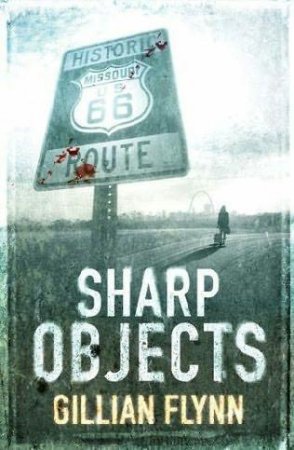 Sharp Objects
Sharp Objects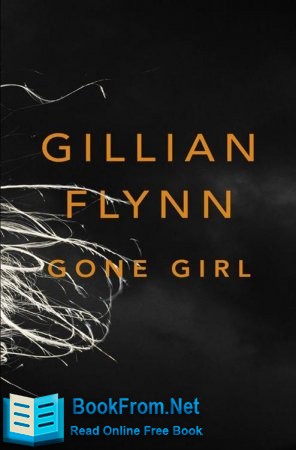 Gone Girl
Gone Girl Dark Places
Dark Places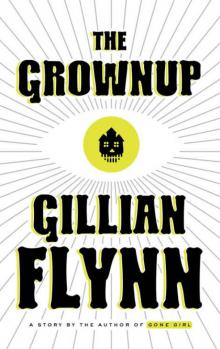 The Grownup
The Grownup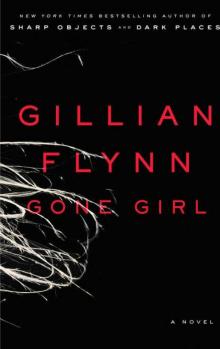 Gone Girl: A Novel
Gone Girl: A Novel The Complete Gillian Flynn
The Complete Gillian Flynn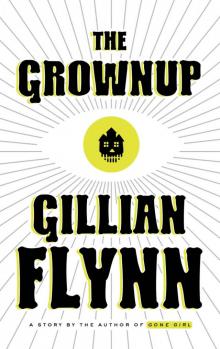 The Grownup: A Story by the Author of Gone Girl (Kindle Single)
The Grownup: A Story by the Author of Gone Girl (Kindle Single)